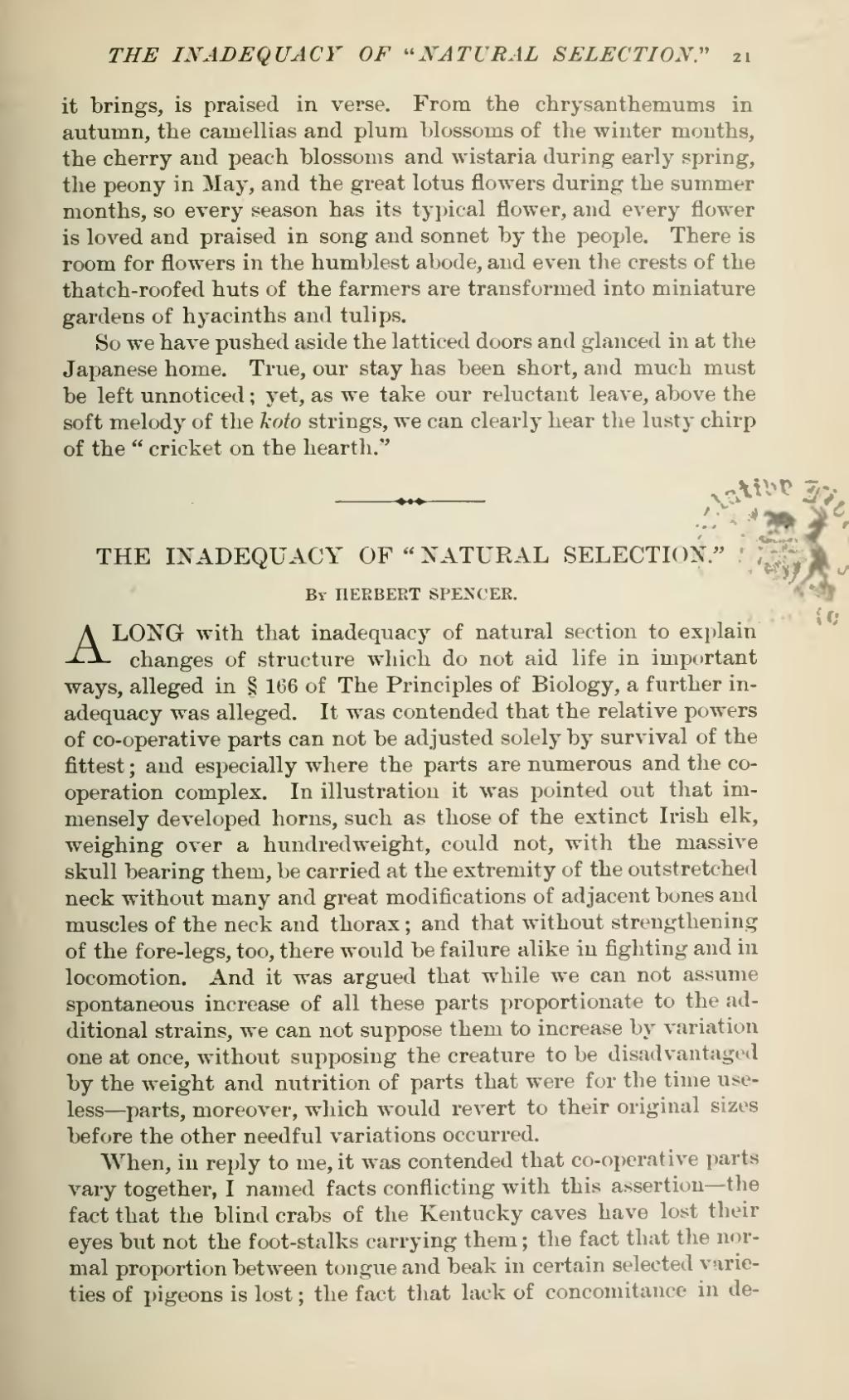it brings, is praised in verse. From the chrysanthemums in autumn, the camellias and plum blossoms of the winter months, the cherry and peach blossoms and wistaria during early spring, the peony in May, and the great lotus flowers during the summer months, so every season has its typical flower, and every flower is loved and praised in song and sonnet by the people. There is room for flowers in the humblest abode, and even the crests of the thatch-roofed huts of the farmers are transformed into miniature gardens of hyacinths and tulips.
So we have pushed aside the latticed doors and glanced in at the Japanese home. True, our stay has been short, and much must be left unnoticed; yet, as we take our reluctant leave, above the soft melody of the koto strings, we can clearly hear the lusty chirp of the "cricket on the hearth."
| THE INADEQUACY OF "NATURAL SELECTION." |
By HERBERT SPENCER.
ALONG with that inadequacy of natural section to explain changes of structure which do not aid life in important ways, alleged in §166 of The Principles of Biology, a further inadequacy was alleged. It was contended that the relative powers of co-operative parts can not be adjusted solely by survival of the fittest; and especially where the parts are numerous and the cooperation complex. In illustration it was pointed out that immensely developed horns, such as those of the extinct Irish elk, weighing over a hundredweight, could not, with the massive skull bearing them, be carried at the extremity of the outstretched neck without many and great modifications of adjacent bones and muscles of the neck and thorax; and that without strengthening of the fore-legs, too, there would be failure alike in fighting and in locomotion. And it was argued that while we can not assume spontaneous increase of all these parts proportionate to the additional strains, we can not suppose them to increase by variation one at once, without supposing the creature to be disadvantaged by the weight and nutrition of parts that were for the time useless—parts, moreover, which would revert to their original sizes before the other needful variations occurred.
When, in reply to me, it was contended that co-operative parts vary together, I named facts conflicting with this assertion—the fact that the blind crabs of the Kentucky caves have lost their eyes but not the foot-stalks carrying them; the fact that the normal proportion between tongue and beak in certain selected varieties of pigeons is lost; the fact that lack of concomitance in de-

